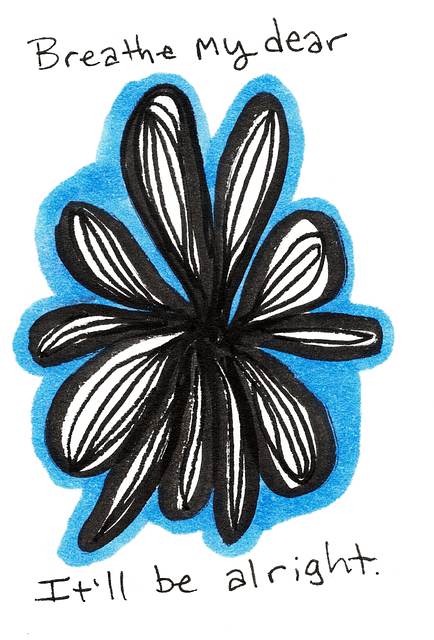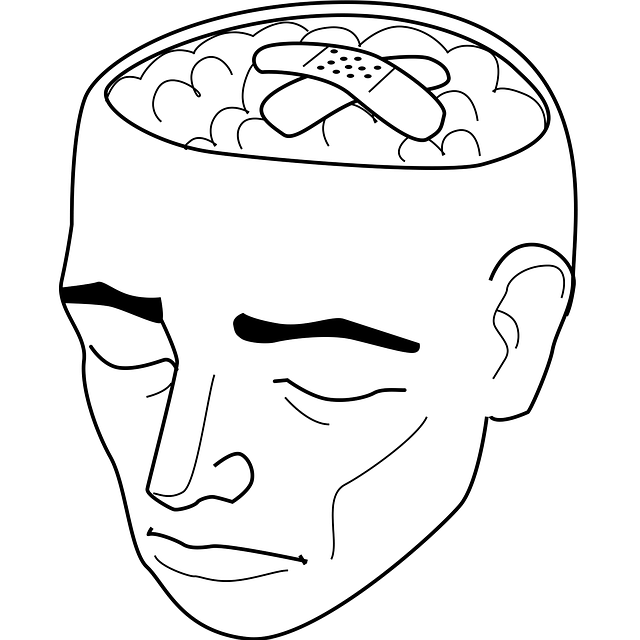Young adults transitioning from adolescence to adulthood face unique mental health challenges due to academic, career, financial, and identity pressures, exacerbated by social media and a fast-paced world. Tailored therapy incorporating mindfulness practices, social skills training, and mood management strategies is crucial in addressing these issues. Mindfulness, such as meditation and breathing exercises, helps reduce anxiety and depression symptoms, preventing burnout for both clients and mental health professionals. Effective coaching programs should focus on modern, engaging techniques like mindfulness, empathy building through active listening and role-playing, confidence boosting exercises, and risk management planning to foster resilience and self-efficacy. Evidence-based practices, including Mental Wellness Journaling Exercises, empower individuals to adopt positive coping mechanisms and embrace lasting behavioral changes for better mental wellness.
Mental wellness coaching programs have emerged as a vital tool for addressing the unique challenges faced by young adults. With increasing rates of mental health issues among this demographic, effective interventions are crucial. This article explores key aspects of developing comprehensive coaching programs, focusing on mindfulness techniques. We delve into understanding the specific mental health challenges of young adults, integrating mindfulness into sessions, designing tailored therapy, and ensuring sustainable wellness through practical implementation strategies. Discover how these elements contribute to fostering resilience and promoting long-term well-being for this generation.
- Understanding Young Adult Mental Health Challenges
- The Role of Mindfulness in Coaching Programs
- Designing Effective Therapy Sessions for Young Adults
- Implementation and Support for Sustainable Wellness
Understanding Young Adult Mental Health Challenges

Young adults face unique mental health challenges as they navigate the transition from adolescence to adulthood. This period is often characterized by increased pressure from academic and career expectations, financial independence, and forming independent identities, all while dealing with the impact of social media and a fast-paced world. As a result, issues like anxiety, depression, and stress are prevalent among this demographic.
Therapy for young adults plays a pivotal role in addressing these challenges. Mindfulness practices have emerged as effective tools within such therapy, enabling individuals to develop emotional well-being promotion techniques. Additionally, social skills training and mood management strategies can empower young adults to cope with stressors and lead fulfilling lives. These comprehensive approaches cater to the specific needs of this age group, fostering resilience and a sense of self in a complex and demanding world.
The Role of Mindfulness in Coaching Programs

Mindfulness has emerged as a powerful tool within mental wellness coaching programs, particularly catering to young adults seeking therapy. This ancient practice encourages individuals to focus on the present moment, cultivating awareness and non-judgmental observation of thoughts and feelings. By integrating mindfulness techniques, coaches can effectively support clients in developing coping skills, enhancing emotional regulation, and fostering a deeper sense of self-awareness. Regular meditation and mindful breathing exercises have been shown to reduce symptoms of anxiety and depression, making them valuable components in the arsenal of any coaching program.
Incorporating mindfulness into coaching doesn’t just benefit the client; it also plays a vital role in the professional development of mental health professionals. A risk assessment for coaches can be enhanced by considering the potential for burnout and the importance of self-care practices, including mindfulness, to maintain optimal well-being. This holistic approach not only ensures better support for clients but also encourages professionals to prioritize their own mental wellness, creating a sustainable career path in therapy for young adults.
Designing Effective Therapy Sessions for Young Adults

In designing effective therapy sessions tailored for young adults, mental wellness coaches must consider the unique needs and challenges faced by this demographic. Sessions should incorporate modern, engaging techniques that resonate with younger individuals. Mindfulness practices, for instance, can be instrumental in teaching participants how to manage stress and anxiety while promoting self-awareness. By fostering a safe, non-judgmental space, coaches can build empathy and encourage open communication.
Empathy building strategies, such as active listening and role-playing scenarios, play a pivotal role in enhancing the therapeutic experience. These methods not only strengthen the coach-client relationship but also equip young adults with valuable emotional regulation skills. Additionally, confidence boosting exercises and risk management planning are essential components to help them navigate life’s challenges head-on, fostering resilience and a sense of self-efficacy.
Implementation and Support for Sustainable Wellness

The development of mental wellness coaching programs should prioritize sustainable wellness practices tailored to meet the unique needs of young adults. Implementation begins with integrating evidence-based strategies such as mindfulness techniques, which have proven effective in reducing stress and anxiety among this demographic. Therapy for Young Adults Mindfulness programs can empower individuals to develop inner strength and cultivate a deeper sense of self-awareness, enabling them to navigate life’s challenges more effectively.
Support for these initiatives extends beyond the coaching environment. Healthcare Provider Cultural Competency Training plays a crucial role in ensuring that professionals are equipped to offer sensitive and effective guidance. Additionally, incorporating Mental Wellness Journaling Exercises can provide clients with tools to track their progress, enhance self-reflection, and reinforce positive coping mechanisms. These practices collectively contribute to fostering a holistic approach to mental wellness, encouraging young adults to embrace lasting behavioral changes.
Mental wellness coaching programs play a vital role in addressing the unique challenges faced by young adults. By integrating mindfulness techniques, these programs can effectively support individuals in navigating their mental health journeys. The article has explored key aspects, from understanding specific mental health issues in this demographic to designing tailored therapy sessions and ensuring long-term sustainability. Mindfulness, as a core component, empowers young adults to manage stress, enhance self-awareness, and develop resilience. With the right implementation and support systems, coaching programs can become powerful tools for fostering positive mental wellness among young adults.








